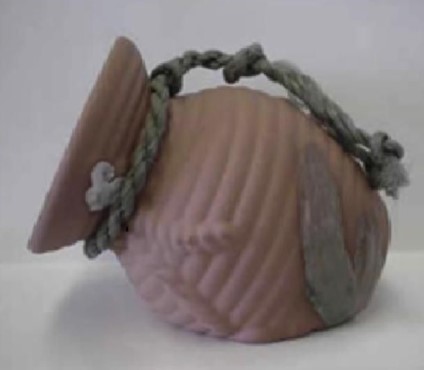Takotsubo cardiomyopathy (TCM) was first described about 30 years ago. It has been attributed to the sudden catecholamine surge in relation to severe stress, which can cause multi-vessel coronary spasms and myocardial apical ballooning. Football supporters are prone to develop severe stress due to sudden changes in match results. This case presents a football supporter of Sheffield United (the Blades) who was admitted to the hospital with cardiac sounding chest pain following a last minute goal by the opposing team. The necessary investigations were carried out including coronary angiogram and echocardiogram. He was diagnosed with TCM following a left ventricular angiogram demonstrating the typical appearance of the octopus pot.
Case presentation
On Tuesday 23 October 2018, Sheffield United (also known as the Blades) played against Stoke City at Bramall Lane stadium in Sheffield. No goals were scored in the first half, and in the thirtieth minute of the second half, the Blades scored their first goal, much to the delight of their fans. They looked forward to a match win, which would have gained the Blades another three points and propelled the team to the top of the English Football League (EFL) Championship table, moving them one step closer to promotion to the Premier League. Unfortunately, just two minutes before the end of the match, Stoke City were awarded a free kick, which resulted in a stunning goal levelling the score to 1–1. As a result, Sheffield United lost two points and were positioned second in the Championship table, behind their rivals Leeds United. Sheffield United fans were shocked by this unexpected result.

After leaving the football match, one devout and emotionally distraught 79-year-old male Sheffield United fan, felt chest discomfort associated with shortness of breath, nausea and sweating. He attended the accident and emergency (A&E) department, and initial examination was unremarkable. A 12-lead electrocardiogram (ECG) showed normal sinus rhythm with no signs of myocardial ischaemia. However, serial blood troponin levels were markedly increased, suggesting acute myocardial injury (troponin T 57 ng/L on arrival and 781 ng/L after six hours). He was admitted to the acute cardiology unit, and the following day underwent diagnostic coronary angiography.
Diagnosis
The angiogram showed unobstructed coronary arteries. However, the left ventricular angiogram revealed an apical systolic ballooning with mid-ventricular hypokinesia demonstrating the typical ‘octopus pot’ appearance, consistent with a diagnosis of Takotsubo cardiomyopathy (TCM) (figures 1 and 2).

Initial management and outcome
The patient was managed medically with regular angiotensin-converting enzyme (ACE) inhibitor and beta blocker (BB). He recovered well, and following mobilisation, was discharged home after one week. A follow-up echocardiogram after two months showed a significant improvement with full recovery of left ventricular function. The patient felt better in himself with no further symptoms of breathlessness or chest pain. He was discharged following outpatient review.
Discussion
TCM was first described in 1991 and the cause attributed to multi-vessel spasm due to sudden catecholamine surge in severe stress situations, such as bereavement, trauma, sepsis or metabolic aberrations.1,2 It has only been reported on two occasions following football matches. One involved a football supporter during a Euro 2012 football match.3 The other involved the spouse of a football supporter who had died following an acute coronary event as a result of a missed penalty.4 In our case, it is likely that the sudden increase in adrenaline was caused by elation, followed by severe disappointment after the last minute goal.
According to a published report following the Federation Internationale de Football Association (FIFA) world cup competition in 2006, there was an increased incidence of cardiac events during that competition.5 Emotional stress, elevating blood pressure and blood glucose, is likely to precipitate plaque rupture, resulting in increased acute coronary syndrome incidence during such competitions. The paper described different outcomes in both football players and fans, in particular acute myocardial infarction, unexplained syncope and cardiac arrhythmias. The mechanism of myocardial injury in this football fan was mainly through emotional rather than physical stress. The moral of this story is that sports fans, particularly those with a passionate interest, are at higher risk of developing cardiovascular events, including Takotsubo cardiomyopathy.
Key messages
- Takotsubo cardiomyopathy (TCM) is a rare cause of chest pain that may mimic acute myocardial infarction
- TCM may be triggered by any physical or emotional stress that causes a sudden surge in adrenaline. It has been reported in a few cases relating to football competitions and other sporting activities
- The management of TCM is largely conservative including angiotensin-converting enzyme (ACE) inhibitors and beta blockers if there is evidence of left ventricular systolic impairment
- Follow-up imaging of the heart, such as echocardiography or cardiac magnetic resonance imaging (MRI), may be necessary to monitor recovery of cardiac function
Conflicts of interest
None declared.
Funding
None.
Patient consent
Full patient written consent was obtained.
References
1. Dote K, Sato H, Tateishi H, Uchida T, Ishihara M. Myocardial stunning due to simultaneous multivessel spasms: a review of 5 cases. J Cardiol 1991;21:203–14.
2. Zhang L, Piña IL. Stress induced cardiomyopathy. Heart Fail Clin 2019;15:41–53. https://doi.org/10.1016/j.hfc.2018.08.005
3. Fijalkowska M, Nowak R, Rynkiewicz A. Takotsubo cardiomyopathy in a male during a Euro 2012 football match. Clin Res Cardiol 2013;102:319–21. https://doi.org/10.1007/s00392-013-0536-7
4. Y-Hassan S, Feldt K, Stalberge M. A missed penalty kick triggered coronary death in the husband and broken heart syndrome in the wife. Am J Cardiol 2015:116;1639–42. https://doi.org/10.1016/j.amjcard.2015.08.033
5. Baumhäkel M, Kindermann M, Kindermann I et al. Soccer world championship: a challenge for the cardiologist. Eur Heart J 2007;28:150–3. https://doi.org/10.1093/eurheartj/ehl313
